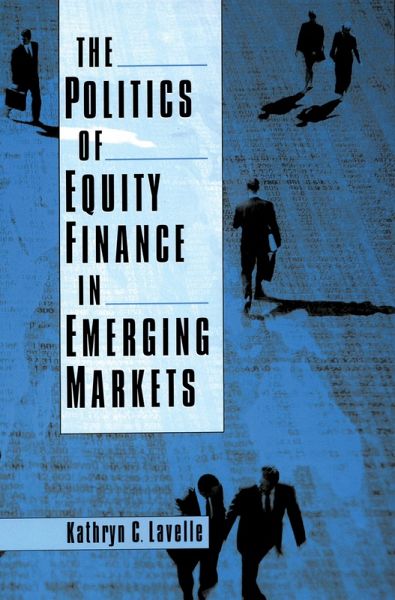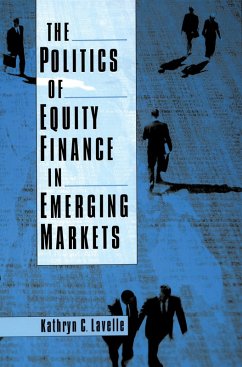
The Politics of Equity Finance in Emerging Markets (eBook, ePUB)
Versandkostenfrei!
Sofort per Download lieferbar
22,95 €
inkl. MwSt.
Weitere Ausgaben:

PAYBACK Punkte
11 °P sammeln!
Emerging market stock issuance relative to GDP rose in the late twentieth century to levels that roughly matched that of advanced, industrial markets. Nonetheless, the connection between owning shares of emerging market stock and the ability to influence the management of these firms remains fundamentally different from the analogous institutional connection that has evolved in industrial markets. The reasons for the differences in emerging markets are both historical and political in nature. That is, local equity markets have had the objective of providing for some degree of local ownership a...
Emerging market stock issuance relative to GDP rose in the late twentieth century to levels that roughly matched that of advanced, industrial markets. Nonetheless, the connection between owning shares of emerging market stock and the ability to influence the management of these firms remains fundamentally different from the analogous institutional connection that has evolved in industrial markets. The reasons for the differences in emerging markets are both historical and political in nature. That is, local equity markets have had the objective of providing for some degree of local ownership and control of large economic entities since the late nineteenth century. However, local markets have operated under different global political structures since that time, ranging from imperialism, to world wars, to sovereign developmental states, to neo-liberal states. Shares issued under these different structures have been reconfigured over time, resulting in a lack of convergence along either the Anglo-American or Continental models of corporate governance. The author uses a political science paradigm to explain the growth of emerging equity markets. She departs from conventional economic explanations and examines politics at the micro-level of large issues of emerging market stock. The second half of the book presents case studies dealing with emerging market countries in Latin America, Asia, Russia and Eastern Europe, Africa and the Middle East. The case studies connect the regional, state, and firm levels to detail the multiple ownership and control arrangements, and to dispel the notion that mere quantitative growth of these markets will lead to a convergence in financial institutional structures along the lines of the industrial core of the world economy.
Dieser Download kann aus rechtlichen Gründen nur mit Rechnungsadresse in A, B, BG, CY, CZ, D, DK, EW, E, FIN, F, GR, HR, H, IRL, I, LT, L, LR, M, NL, PL, P, R, S, SLO, SK ausgeliefert werden.













